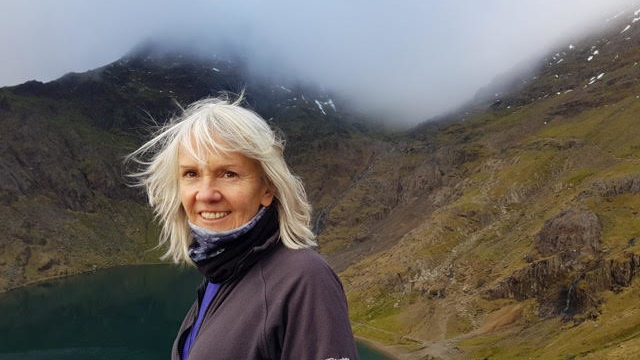
As world leaders meet to tackle climate change at COP 27, writer, zoologist and presenter Nicola Davies talks here about the inspiration behind her double Carnegie nominated The Song that Sings Us – the story of a world like ours, but where the rules of nature have never been completely forgotten, and the peril of exploiting fossil fuels was recognised from the start…
My favourite object in the British Museum is an anorak. It’s beautifully constructed, light as a leaf and completely transparent. It isn’t a high-tech modern garment but a traditional Inuit parka, made for summer hunting, from a kayak. The material it’s made from is the epithelial lining of a seal’s gut, sewn together with sinew, that swells when wet, to make the seams watertight. I love it not just because of the ingenuity in use of materials and the excellence of its design, but because it symbolises a deep knowledge of, and connection with, the natural world.
All over the planet, indigenous cultures embody both the inventiveness of the human mind and the lessons learned from Nature, the most uncompromising teacher. For people living, like Inuit, in direct contact with their environments, respect for natural resources was the rule and the consequences of breaking it were starvation, disease and death. The rewards were not only survival but a sense of belonging, purpose and deep meaning. Concepts that we see as new in the modern age – recycling, reusing, repairing, sustainability – were hard wired into belief systems and cultural practices.
What has allowed us to break the rules for so long was the discovery of fossil fuels. We could step out of the day-to-day current account of the carbon cycle and plunder 60 million years of stored photosynthesis in the form of coal, oil and gas.
And that, of course, is what’s got us into the potentially civilisation-ending crisis that we’re in.
But just supposing we had never completely forgotten those lessons from nature. That we had either never found fossil fuels, or found them and realised what the dire consequences of exploiting them would be? That is the world that I imagined in creating The Song That Sings Us, a global human civilisation fuelled by renewable energy and still abiding by the rules that nature originally taught us.
Another strand to my fantasy world is one of the forces that has kept humankind within the bounds set by nature’s parameters, and that is the voice of other living things. In the world of my novel there are humans able to tune into animal thoughts. I didn’t want to create a Disney-esque situation where animals are just little avatars of humans. So, the voices of animals in the story are sometimes hard to interpret and true communication requires commitment on both sides.
If this sounds to you like a rather dull utopia, don’t worry, there are baddies! They are called the Automators. Their motivation is personal gain, money and power and they can see that by converting the world to dependence on fossil fuels, whose supply they control, they’ll get just what they want. The way they sell this to the general population is by promising to end the ‘tyranny of nature’ and when that doesn’t work, they resort to the time-honoured methods of violence and oppression.
At the heart of the story are three children, the offspring of a rebel leader who has opposed the Automators’ rise. There are animal characters too who give readers a perspective on the world that they may not have had before. From the first moment the protagonists are thrown into a maelstrom. There are chases and disasters, separations and surprising alliances, love stories and fights. I wanted to give my readers a really exciting ride with lots of emotional engagement and thrills, but I also wanted to make them feel, that in our world, all is not lost. The Automator forces in the real world are very powerful and they would like us to despair, to assume that the fight is lost before it’s begun. Despair suits them very well. It will allow them to hold onto the reins of power even as they drive us all over the precipice of environmental disaster. They portray the changes that are needed as impossible, they focus on all we will lose in a greener, sustainable world. They never speak about what we will gain, a better life for more of earth’s inhabitants: a future that we can look forward to instead of dread; hope and renewal instead of an apocalypse that even the very rich will struggle to survive.
I wanted my readers to feel that change is possible, and that change can happen very fast if everyone works together. And the first change that is required is simple, but huge: to know what the Inuit knew which is that we are all one kin, all life, interdependent, one great family. From that profound realisation all other things flow.
– Nicola Davies

The Song that Sings Us has been nominated for the Yoto Carnegie Medal for Writing (Nicola Davies) and the Yoto Carnegie Medal for Illustration (Jackie Morris).
Get your copy here.
Learn more about the Yoto Carnegies here.

